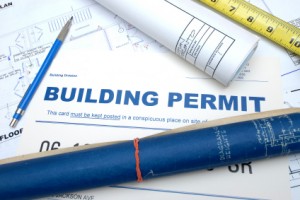
Building permits led the way in the latest numbers on residential construction from the Census Bureau, rising 26.8 percent.
By Peter Ricci
Building permits increased 3.6 percent from October to November and 26.8 percent year-over-year in the latest joint study by the U.S. Census Bureau and the Department of Housing and Urban Development.
Altogether, between single-family and multifamily authorizations, building permits finished November at an annual rate of 899,000, which bodes well for future construction in 2013.
Building Permits, Housing Starts and Housing Completions All Strong
In addition to its data on building permits, the Census Bureau reported similarly strong numbers for housing starts and housing completions:
- Privately-owned housing starts, at an annual rate of 861,000, actually declined a bit from October to November by 3.0 percent, though they were 21.6 percent above November 2011’s levels.
- The key with housing starts, as we’ve repeatedly emphasized, is to put today’s data into perspective, and when we do that, the trends are highly encouraging: from the post-bubble low in early 2010, housing starts are now up by 80 percent, with single-family starts up by 60 percent; additionally, with November’s data, housing starts are on pace to improve 25 percent over 2011’s numbers.
- The numbers for housing completions were similarly promising. Though down monthly by 9.7 percent, completions were up by 16.1 percent from last year. And of course, with building permits as strong as they are, we can count on positive numbers for both housing starts and completions in 2013.
A Positive Future for Residential Construction
And that’s the key fact, one that Bill McBride has been mentioning with encouraging regularity on his Calculated Risk blog – residential construction, given all the overbuilding of the boom years, fell pretty hard from 2007 to 2010, but now that all that excess inventory has been absorbed, and housing inventory levels drop further and further with each passing month, we can all but count on residential construction making a comeback, and a sustainable one at that.
“The ‘wide bottom’ was what I was forecasting several years ago,” McBride wrote, “and now I expect several years of increasing single family starts and completions.”
